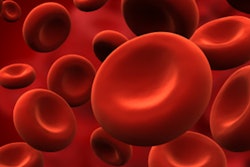
I'm fortunate to have some patients who are able to ask me detailed questions about their overall health. I had a patient who reads my blog ask me if I still practiced intermittent fasting and if this would be something he should try, as he wanted to lose a little weight. I've practiced intermittent fasting four to five days a week for almost three years now.
But before we get into what I told this patient, let's look at some questions and concerns about the practice of fasting.
Intermittent fasting
 Alvin Danenberg, DDS.
Alvin Danenberg, DDS.Intermittent fasting is basically an extended time period when you don't eat. Now, it's true that all of us fast to some extent because we do not eat when we are asleep, but, in general, intermittent fasting is a conscious decision not to eat for a period of time of 14 to 16 hours.
Benefits of intermittent fasting can include weight loss, a reduction in sugar cravings, improved gut bacteria functioning, and more. The benefits of intermittent fasting will indirectly improve the microbiome of the oral cavity.
Research shows fasting for about 14 to 16 hours will allow a body to use up its glycogen stores and shift into a fat-burning mode. When the body shifts from burning sugar to burning fat as its primary fuel, health results start to happen.
Going that period of time doesn't mean you aren't staying hydrated, I told my patient. When you fast, you refrain from eating food, but you still drink water. However, you don't have to limit yourself to just water. You could include other noncaloric beverages, such as herbal tea and black coffee. Noncaloric beverages are important as they will not initiate an insulin response; therefore, these drinks will not break the benefits of fasting.
There are many ways to incorporate intermittent fasting into a routine. I suggested to this patient that he could, for example, stop eating around 8 p.m. and not eat until noon the next day. That would place him into a fast for 16 hours.
Who shouldn't fast?
“The benefits of intermittent fasting will indirectly improve the microbiome of the oral cavity.”
I told my patient to check with his primary care physician before he undertook a fasting process. Most people can safely try fasting, but not everyone. Below is a list of people who should not fast.
- Patients who are underweight
- Patients who are malnourished
- Children or adolescents
- Women who are pregnant or breastfeeding
- Patients who are dealing with hypothyroidism
- Overstressed patients
- Patients taking a medication that must be taken with food, especially diabetes medications
- Patients susceptible to gout
Going forward
I also reminded this patient that he must eat nutrient-dense foods when he is eating and to look into a multimineral supplement if he wanted to fast more than 24 hours at a time.
I'm eager to see this patient again to see if he's seen a physician and started with a fasting program.
Disclaimer: Dr. Danenberg's column relates his own research and experience with fasting. Dr. Danenberg and DrBicuspid.com urge you to recommend to your patients that they seek medical advice before starting a program such as this.
Alvin Danenberg, DDS, practices at the Bluffton Center for Dentistry in Bluffton, SC. He is also on the faculty of the College of Integrative Medicine and created its integrative periodontal teaching module. He also spent two years as chief of periodontics at Charleston Air Force Base earlier in his career. His website is drdanenberg.com.
The comments and observations expressed herein do not necessarily reflect the opinions of DrBicuspid.com, nor should they be construed as an endorsement or admonishment of any particular idea, vendor, or organization.



















